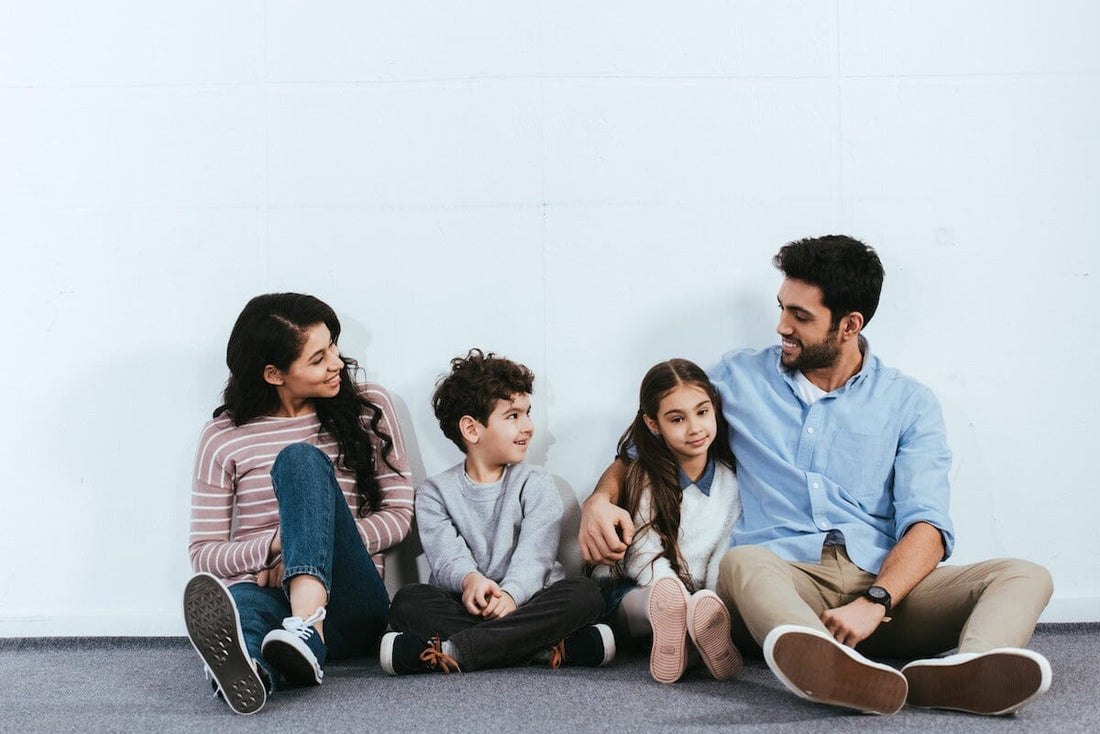Talking to Your Child About Mental Health
If you’ve ever asked an obviously upset child or teen “What’s wrong?” only to have them reply “nothing,” you already know conversations about feelings aren't always easy. But with the right strategies in place, you can learn how to talk about mental health with your child and come up with coping skills together. From practicing active listening to collaborating with your child’s school, we’re sharing 10 tips to help improve your communication with your child about their emotions.
Breaking the Ice on Mental Health Conversations with Your Kids
Childhood and adolescence are important stages of life for mental health. Along with physical growth and development, children and adolescents are shaping their future mental health landscape based on the cognitive and social-emotional skills they learn during this critical time.
Whether your child is currently facing a mental health challenge or your aim is to teach them proactive mental health habits, the following 10 tips will help break the ice to initiate these important conversations.
1. Tailor Your Approach for Different Developmental Stages
When it comes to addressing mental health in children and teens, it’s important to note that different ages will process information differently, so you must tailor your approach based on their developmental stage. Younger children may need simple and brief conversations, while teenagers might appreciate more detailed discussions. No matter what their age is, it’s important to demonstrate that mental health is just as important as physical health.
2. Foster Openness & Create a Safe Space for Your Child to Share
Establishing trust is essential. Create an environment where your child feels safe to express their thoughts and feelings without fear of judgment. Let them know that their emotions are valid, and you are there to support them. According to the organization Mental Health America, some of the most common reasons kids don’t talk to their parents about mental health include not wanting to sadden or disappoint their parents, fear of not being believed or taken seriously, and not wanting to add to their parents’ burden.1
3. Strengthen Your Connection Through Active Listening
Actively listening to your child fosters a stronger connection. Put away all screens, be fully present when they talk, show empathy, and ask open-ended questions. Active listening is about listening to understand, not listening to respond or give advice.
Some examples of active listening techniques:
- Practicing good eye contact
- Paraphrasing and reflecting back what your child has just told you
- Paying attention to non-verbal cues
- Letting them finish speaking; not interrupting
4. Teach Your Child It’s Okay to Feel a Range of Emotions
Encourage emotional intelligence by teaching your child that feeling a range of emotions is normal. Help them identify, label, and express their feelings, emphasizing that it's okay to experience both positive and negative emotions. When your child labels a feeling, they create distance from it. They realize the feeling is not permanent and doesn’t define who they are. And when labeling is done habitually, your child learns they can choose how to respond to those feelings.
5. Help Them Identify Potential Mental Health Challenges
Have destigmatizing conversations about mental health issues, such as anxiety or depression. Tell your child that everyone feels anxious, sad, or angry from time to time, but sometimes difficult emotions are persistent and they won’t go away without proper attention. If you’ve noticed changes in behavior, mood swings, withdrawal, sleep issues,or a decline in academic performance, you may want to discuss some external support options together, which could include professional counseling and/or medication.
Brillia for Children & Teens is a non-prescription medication that helps to reduce anxiety, stress, restlessness, and irritability for ages 5-18. Free from harsh synthetic chemicals and harmful side effects, the medication does not mask your child’s emotions; it helps regulate the brain chemical imbalances that provoke these emotions through science-backed antibody ingredients. Children and teens taking Brillia feel more equipped to manage their stressors, especially when they implement the healthy lifestyle habits outlined in our holistic plan, the 5 Pillars: proper nutrition, adequate sleep, controlled screen time, and mindfulness. Because no medication is a substitute for a healthy and balanced lifestyle, Brillia emphasizes both. As your child implements healthier habits and becomes accustomed to them, they will eventually need less and less of the medication, although they can continue taking Brillia as long as it is helping.
Learn more about how Brillia works.
6. Encourage Healthy Coping Mechanisms
If your child starts to get agitated, anxious, or overly emotional when talking about their feelings, this is a good opportunity to introduce some healthy coping mechanisms. You might demonstrate some deep breathing exercises, practice meditation together, offer prompts for journaling, or collaborate on an expressive art piece. These habits allow them to relieve excess energy, get clarity, and focus on the moment. They also encourage your child to do something with their emotions instead of passively accepting how they feel.
7. Destigmatize Therapy by Discussing Benefits of Support without Judgment
Normalize the idea of seeking professional help. In the same way you take them to the pediatrician to care for their body, you can take them to a psychologist or other professional to care for their mind. Before the first appointment, give them a run-down of what to expect in age-appropriate terms. Be sure to speak positively about therapy; it isn’t something to feel ashamed about, they didn’t do anything wrong, and they certainly aren’t being punished.
8. Navigate the Impact of Technology on Mental Health
In today's digital age, technology plays a significant role in children's lives. When used responsibly, screens can be enriching, entertaining, and educational. Technology can also support their social life by keeping them in touch with their friends. But when used in excess, it can increase depression, anxiety, irritability, and restlessness. Excess screen time can interfere with learning and even become addictive. This is especially true if your child loves social media, which is linked to low self-esteem and depression in kids and teens. When talking about how to use technology responsibly with your kids, be sure that you recognize the positive aspects of screens first. You don’t want your child or teen to get the impression that you’re going to take their devices away. Work together to establish healthy boundaries, such as time limits and designated screen-free zones in the house.
9. Find the Right Level of Involvement in Your Child’s Journey
While it's essential to be involved, finding the right balance is key. Respect your child's autonomy and allow them space to navigate their emotions. Strike a balance between being supportive and giving them room to grow. If you try to have a conversation with your child and they’re extremely resistant, wait until they’re ready or find ways to talk to them during low-pressure situations like the car ride to or from school or during a walk.
10. Collaborate with Schools to Build Support Networks
Engage with your child's school to build a supportive network. If you suspect your child is dealing with a mental health issue, get some feedback from their teacher to see if they’ve noticed anything amiss. Schools play a vital role in a child's mental well-being and your child spends a lot of their time there, so don’t be afraid to ask school staff what programs they have in place to support your child or teen’s social and emotional learning.
How to Cultivate Lasting Habits
Building lasting habits requires consistency. Incorporate mental health check-ins into your routine, encourage healthy habits, and reinforce the importance of emotional well-being. Make sure that you’re also setting a good example for your child, taking charge of your own mental health, practicing mindfulness techniques together, and prioritizing your own self-care.
Initiating and navigating mental health conversations with your kids is a journey that evolves as they grow. The more you learn, the more you have to share with them. Explore more tips and resources on supporting your child’s mental health at the Brillia(nce) Resource Center.
Get a whole bunch of support right in your inbox.







